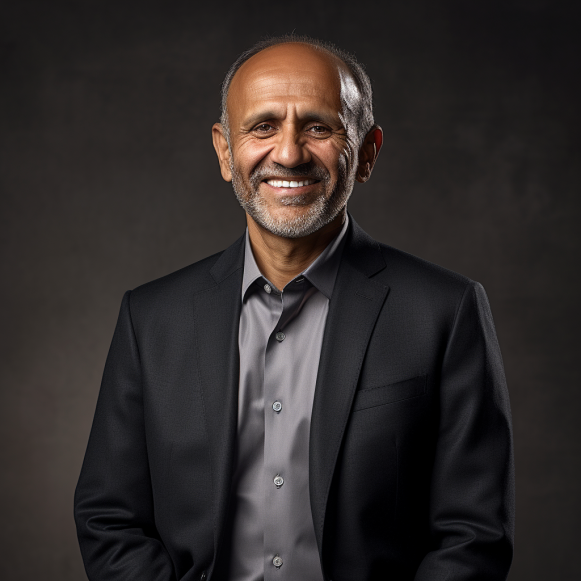How Whitney Wolfe Herd’s fateful deal with a Russian mogul deprived early Bumble employees of a stock windfall when she became a billionaire

Insider first published this story in February 2022, describing how Bumble’s founder and then-CEO Whitney Wolfe Herd struck a deal with Worldwide Vision Limited, the parent company of Russian entrepreneur Andrey Andreev, founder of the dating app Badoo. Wolfe Herd lost majority ownership of Bumble as a result of the deal, and she also lost the ability to grant equity in the company to some of her employees. Many of those employees expressed their dissatisfaction with not being able to reap the financial benefits of the company’s February 2021 IPO to Insider. Insider is republishing this story because Wolfe Herd, the CEO of Bumble, has stepped down and will become its executive chair.
Whitney Wolfe Herd experienced a watershed moment on February 11, 2021.
Wolfe Herd was enjoying a rare moment of vindication after years of arduous work trying to build a radically different kind of dating app, accompanied by constant scrutiny of her personal and business life.
Bumble, her app where women make the first move, had just gone public on the Nasdaq and was up more than 60%. Wolfe Herd, 31, was the world’s youngest self-made female billionaire after becoming the youngest woman to take a company public at the age of 31.
“I no longer need to justify myself.” “I’m done,” she said to a Time reporter, who described Wolfe Herd as “blinking back tears” during the interview.
At the same time, another person involved in the app’s development was struggling with her emotions.
“I wanted to throw my phone into the water because I had so many people texting me, ‘Congratulations, this must be so exciting for you, you’re about to get a life-changing amount of money,'” said the former employee, who worked for Bumble for three years, beginning in a cramped, two-bedroom apartment in Austin, where some staff meetings were held in the closet.
“It was just the most triggering week in the world,” she went on to say.
Friends of the former employee assumed the startup job came with a large portion of stock options or restricted stock units, which are common forms of compensation in the tech industry. Bumble, it turns out, had not followed the usual script. The ex-employee, along with dozens of other early Bumble employees, had contributed to the development of a wildly popular dating app that would go on to be used in 150 countries, but they had no equity in the company.
For a lot of them, it was their first job out of college. They didn’t realize they should be entitled to equity as employees at a startup
Bumble remains a tech company that epitomizes the possibilities of doing things differently seven years after its founding and one year after its Wall Street debut: The dating app aspires to be an antidote to social media’s pervasive misogyny, and Wolfe Herd’s approach to everything from content moderation to screen-time management within the app reflects a willingness to deviate from unhealthy industry norms.
However, for early Bumble employees, the company’s unconventional approach to equity, which included the selective use of an obscure form of compensation known internally as “shadow equity,” remains a perplexing and bitter memory that is difficult to reconcile with Bumble’s positive accomplishments and oft-repeated maxim — “Bee Kind.”
Wolfe Herd redefined the image of a tech CEO, but according to many former employees, she insisted for years that she couldn’t deliver one of the most basic elements, and key benefits, of startup life.
In fact, Bumble was not a true startup. The popular app that promoted female empowerment was a subsidiary of a Russian billionaire’s overseas corporation, and Wolfe Herd was a founder with no voting rights in the parent company. The unusual arrangement did not prevent Bumble from thriving under Wolfe Herd’s leadership, but for many of the employees who dedicated themselves to her vision, the distinction was critical.
“I can’t count the number of conversations I’ve had where I mentioned I was an early hire at Bumble and people are like, ‘Oh, wow, congratulations, you must be rich,’ and it’s just sort of like, ‘Um, I got nothing,” ‘ said an ex-employee.
The former employee, as well as the 13 other current and former employees interviewed for this story, requested anonymity in order to discuss sensitive internal matters. Insider is aware of their identities.
Bumble declined to make Wolfe Herd or other executives available for comment, but the company’s chief spokesperson, Robbie McKay, told Insider in a statement that “since the operating control of the company changed upon the acquisition of former shareholder’s equity in 2019, Whitney Wolfe Herd and the current board of directors have ensured that every single employee (over 800 people) have been granted equity and have an active ownership stake in Bumble’s success.”
(McKay also asked the reporter to disclose a potential conflict of interest because he once tweeted a positive comment about a competing dating app.)
Wolfe Herd tells hungover employees her ‘hands are tied’
Many of the Bumble employees in the windowless Ritz-Carlton conference room were hungover from a night of drinking and roasting s’mores by the fire while trying to understand what Wolfe Herd was saying.
The employees were in Half Moon Bay, a picturesque Northern California beach town, for Bumble’s 2018 “Beetreat” — an annual extravaganza of drinking, eating, and team-building that has previously taken place in Deer Valley, Utah, and Punta Mita, Mexico. Wolfe Herd was finally answering questions about equity that morning.
“My hands are tied,” Wolfe Herd told the audience, according to several witnesses.
Early employees told Insider that they had been given vague assurances for years that they would be given Bumble stock so that they could share in the company’s wealth. Wolfe Herd was now telling them it wasn’t going to happen, at least not anytime soon. She couldn’t give them any equity, she explained, because she didn’t own the company’s stock and would lose her board seat if she did.
“Everybody was sitting there fuming,” one person in the room recalled. “I saw steam coming out of people’s heads. It was clear that she was not going to back down.”
One person recalled that the personalized yellow key chains that Bumble had distributed to its first 100 employees at the retreat as a token of gratitude for their loyalty now felt like an ironic slap in the face. Furious about the stock update, some key chain recipients left the gift in their hotel rooms.
According to a spokesperson for Bumble, “It was made clear to them that while no equity was available now, if they stayed with the business there could potentially be opportunities in the future.”
Sarah Mick, Bumble’s first chief creative officer, believes it’s unfair to suggest Wolfe Herd acted maliciously when it came to employee stock compensation in the early days of the company.
“That’s not her personality. “The goal was to do something good,” said Mick, who co-founded Bumble with Wolfe Herd and received a 0.5% stake as one of only two early employees to receive a standard form of equity.
“I can unequivocally say that if there was anything that ended up not correctly being handled, she definitely never went into it with that intention,” Mick was quoted as saying by Insider.
An unusual pairing leads to a ‘Faustian bargain’
According to Mick, who sat next to Wolfe Herd when she was a designer at Tinder, Wolfe Herd’s decision to create Bumble was a result of her miserable time helping start one of its biggest competitors and, ironically, feeling short shrifted on equity by that company.
“After our experiences creating Tinder, she wanted to create something that was positive for women,” Mick went on to say. “She had found a cause she believed in.”
Wolfe Herd famously quit her Tinder marketing job in 2014 and filed a sexual-harassment lawsuit, alleging that her boss and on-again, off-again boyfriend, Justin Mateen, had lashed out at her after their relationship ended. Wolfe Herd and Tinder quickly reached an agreement for a reported $1 million in Tinder stock.
Wolfe Herd told Insider in 2015 that she never wanted to create another dating app after leaving Tinder, but rather a female-only social network based on support and empowerment. But then she met Andrey Andreev, a Russian entrepreneur who had already launched several successful dating apps, including Badoo, which is mostly unknown in the United States but is one of the world’s most popular dating apps.
It was an odd pairing, both culturally and geographically. Most of the engineering and product design was handled by Andreev’s team in London, while Wolfe Herd, thousands of miles away in Austin, oversaw marketing and a work culture many employees described as cliquey.
The partnership also came with onerous terms: Andreev would own close to 80% of Bumble, with Wolfe Herd getting around a 20% stake. What’s more, Bumble would be a subsidiary of Worldwide Vision Limited, Andreev’s Bermuda-based parent company. Wolfe Herd had no equity, ownership interests, or voting rights in WVL.
“It was a Faustian bargain,” said a former employee. “She didn’t own her own company. To get it off the ground, she had to hand control over to the Russian guy.”
On the surface, Wolfe Herd played the part of the typical startup CEO, frequenting the tech-conference circuit, with appearances at TechCrunch Disrupt and South by Southwest. And while Bumble seemed like a well-funded startup, with generous perks and free food served in a colorful open-air office, there were some telltale signs of Bumble’s unusual corporate structure, including the fact that it had no engineers in Austin.
Founders often make fateful decisions in the very early days that they later come to regret once the company gets off the ground, said Mick, who has worked at several startups. No one, including the 25-year-old Wolfe Herd, could have known the smash hit that Bumble would become, she said.
“I think that at the time that she started it, she likely thought it was a great deal, given her experience at the time,” said Mick, referring to Wolfe Herd’s arrangement with Andreev.
The power dynamic behind closed doors between Wolfe Herd and Andreev remains unclear. In public at least, they projected closeness and were effusive with praise. Wolfe Herd once called him her biggest mentor, saying, “He’s become my family and one of my best friends.” Andreev referred to Wolfe Herd in 2019 as his “best partner and a dear friend.”
Bumble’s spokesperson told Insider that Wolfe Herd advocated for equity grants when she founded the company in 2014 but could not grant them because she did not control the company.
Andreev did not respond to multiple messages sent by Insider.
Former employees say it stretches their credulity to believe the powerful Wolfe Herd — who could seemingly turn anything she wished at the company into reality — was powerless to grant equity. They also grew tired of her blaming Andreev and his majority stake in the company for their predicament.
“She used to give a lot of different excuses about why she couldn’t do it, but ultimately she could do anything she wanted,” said one former employee. “It was a self-constructed limitation.”
Instead of traditional stock grants, the board did agree in 2014 to award a select few employees what was referred to internally as “shadow equity.” Sometimes called phantom equity, it is a way for companies to award cash based on how a company’s stock performs. But crucially, the recipients do not receive any actual stock, so the advantage for Wolfe Herd and Andreev was clear: They could retain employees without diluting their stakes.
It is unusual for startups to issue shadow equity, according to Jody Thelander, a compensation executive who regularly surveys tech companies.
“You hear these cases, but I think they’re few and far between,” she said.
Bumble’s spokesperson would not say how many employees were issued shadow equity but confirmed that Wolfe Herd’s close circle of early executives and friends known as the OGs all got it — former head of brand Alexandra Williamson, former chief operating officer Samantha Fulgham, former director of marketing Chelsea Maclin, and chief of staff Caroline Ellis Roche.
Some early employees said they only found out about the shadow-equity program, and who received it, years later. Had they known about the behind-closed-doors deal earlier, a former employee said, “a coup would have occurred.”
Bumble employees acknowledge they were hardly suffering. They enjoyed complimentary blowouts and manicures every month in the Austin office’s mirror-lined “glam room.” London workers were treated to breakfast at a morning omelet station, daily five-minute massages, and free haircuts every other Thursday. But they say the constant reminders of free-flowing capital and standard startup perks made it all the more infuriating they were not getting the one startup perk they really wanted.
“It was this dichotomy of we’re doing very well as a company and the whole company is staying at a Ritz-Carlton resort outside San Francisco on the beach and everyone’s ordering whatever they want to,” a former employee recalled. “But no one has any stake in this company.”
Some employees said they were led to believe they would get equity
After Wolfe Herd married Texas oil magnate Michael Herd in a lavish ceremony in Positano, Italy, in 2017, the wealth and glamour of Bumble’s CEO became more pronounced in the eyes of employees, as did the anxiety of those who felt they’d been deprived of equity.
Early employees — some of whom felt underpaid and underappreciated working long nights and weekends — kept asking when they would get stock.
“There was lots of whispering because people didn’t feel comfortable straight-up asking in an all-hands meeting,” said a former employee. “There had been lots of people talking to HR, people asking their managers, but their managers didn’t have equity and they didn’t know what the situation was.”
Some employees submitted anonymous questions for all-staff meetings via online forms — often in coordinated efforts to demonstrate widespread interest — but say Wolfe Herd never answered them until the 2018 retreat in Half Moon Bay. (“This is false,” said Bumble’s spokesperson. “The team would answer any HR-related questions to the best of their ability.”)
What particularly galled some employees, according to three early hires, was they had all been led to believe they would be granted stock. The former employees recall being told the company was “figuring it out” and planned to “take care of everybody.”
“I was like, ‘OK, I trust these people,'” one early employee remembered. “This is a reputable company. This isn’t some random startup. People knew what Bumble was and they’re not going to pull the wool over my eyes.”
Another asked why stock wasn’t mentioned in her offer letter after her hiring manager promised it during the interviewing process and was given the “we’re working to take care of you” line.
“It was said to lure me in and it was never mentioned again,” the former employee said, adding that she wishes she had insisted on getting something in writing. “In retrospect, I should have pushed for that.”
Another former employee remembered Wolfe Herd saying on multiple occasions that she planned to “make it right.”
“I guess it is up to interpretation for what that means,” said the former employee. “I interpreted it as there would be some kind of equity of a sufficient amount before an IPO or sale.”
Bumble’s spokesperson said that “all commitments were honored” as it relates to equity.
Other early employees acknowledged they were never promised stock and were obviously free to seek other jobs with equity compensation. But they still felt they should have been rewarded for helping create something so lucrative.
“I just feel like if I was suddenly worth a billion dollars and I knew there were these people who helped me get there that, intentionally or not, didn’t get their share, I don’t know how I could live with myself,” said a former employee.
Asked why they accepted a job without equity, former employees cited a variety of factors — quickly needing a new job after a breakup or being laid off from a failed startup, or needing a UK visa that Bumble would sponsor.
“We all came to Bumble for different reasons and, in a way, we were distressed assets,” said a former employee, who said he doubts employees would have joined the company if it was based in the Bay Area, where stock options are talked about obsessively.
It also did not help that many early employees were inexperienced.
“For a lot of them, it was their first job out of college,” added the former employee. “They didn’t realize they should be entitled to equity as employees at a startup and it was really abnormal they didn’t have it.”
Last year, employees at Mailchimp were furious when they learned the Atlanta-based email-marketing company was being sold to Intuit for $12 billion. The company’s two cofounders made about $5 billion each from the deal, but employees had never been given equity and got nothing.
Examples like that are rare for US startups, which typically offer stock in exchange for backbreaking hours and precarious job security.
“That’s why someone will leave a steady job and go to a startup, as they get equity, which promises great returns,” said Charles Elson, a professor of finance at the University of Delaware who is a leading authority on corporate governance.
Elson told Insider that while he did not know the specifics of Bumble’s bylaws, Wolfe Herd’s explanation that she would lose her board seat if she gave up shares is “unusual.”
“As a CEO and founder, I find it hard to imagine they would remove her from the board unless they were going to remove her from the CEO position,” Elson said, adding that minority shareholders owning 20% or even less of a company frequently advocate for significant changes.
“It happens all the time,” Elson said. “With that kind of block, you can accomplish a lot.”
Nine months before the IPO, employees get equity
After a salacious story in Forbes earlier that year detailed naked, cocaine-fueled parties and the objectification of women at Badoo offices in London, Andreev sold his entire stake in MagicLab, the renamed parent company of Bumble and Badoo, to Blackstone for a $3 billion valuation in 2019.
Wolfe Herd was named CEO of MagicLab and received a $125 million cash payout, as well as a $119 million loan, which she later repaid. Another corporate restructuring occurred the following year, with a new president, board of directors, and Wolfe Herd becoming CEO of Bumble, which would become the parent company of Badoo.
Wolfe Herd was finally able to award stock options and restricted stock units to all of her employees beginning in June 2020, just nine months before the IPO, after more than five years of not controlling the company for which she served as the public face.
As a public company, Bumble has continued to grow its revenue while navigating the challenges of the pandemic. However, investor concerns about user growth have weighed on the company’s stock, which has fallen from its initial surge a year ago and now trades at a significant discount to its IPO price.
Wolfe Herd is no longer a billionaire, but her fortune is still estimated to be $627 million based on the current share price.
Employees who helped build Bumble but left in dissatisfaction before equity became available find it difficult to accept being left off the cap table, especially since some of their peers at competing dating apps enjoy early retirement.
“On the one hand, you’re proud of what you’ve done,” a former employee explained. “The company exists because of all of your hard work. But, in terms of the company’s history and our own bank accounts, we might as well not have been there.”






